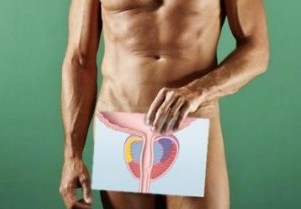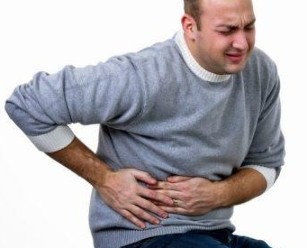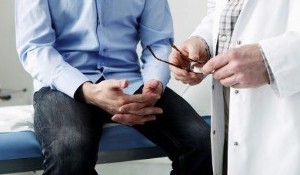Inflammation of the prostate is a serious disease that can lead to serious consequences if left untreated. The prostate is below the urinary bladder.
If it is inflamed, then significantly increases, the overlapping obstruct the neck of the bladder and the outflow of urine. Therefore, at the first signs and manifestations, you must bring promptly contact a specialist and start the treatment of Prostatitis.

The main symptoms: such as the Prostatitis is shown?
Earlier it was so that this disease, adults and older men, but in the modern conditions of life (ecology, quality of the food, fashion, careless relationship of adolescents to their health, the constant travel, etc.), inflammation of the prostate significantly "younger".
The morbidity of the young people up to the age of 18 years is 5%, at the age of 18 to 30 years 45%, from 30 to 50 years – 20%, more than 50 years – 30%. This suggests that the consequences of the male health and stop signs you have to with a young age.
There are several types according to the Form of Prostatitis symptoms (chronic, acute) and type of inflammation (bacterial, stagnant, purulent, infectious, calculous). The symptomatology of the disease vary, depending on the type of inflammation of the prostate gland in men.
Symptoms of acute Prostatitis:
- Malaise (Weakness, Chills, Fever). Man can start to throw in the heat and in the cold. Common symptoms are reminiscent of the expression of SARS or Influenza;
- drastic increase of the body temperature subfebrile up to the mark (37,5-38 degrees) or higher;
- strong cutting, stabbing pain in the perineum (the area of the groin, Anus, etc.);
- Pain in the lower back, in the hip radiating to the legs, knees, feet, or muscles of the legs;
- acute pain during defecation and during pressing;
- Problems with urination (insufficient / frequent urination, pain or difficulty urinating). Urinary retention, a longer period of time (over 12 hours);
- Deterioration of sexual function (weak or no erection, ejaculation, problems with conception);
- Discharge from the genitals (in the most severe and advanced cases of Prostatitis).
Symptoms of chronic Prostatitis:
- Problems with urination (difficulty urinating, pain, inadequate discharge of urine, feeling of incomplete emptying of the bladder, etc.);
- unpleasant dragging pain and sensations in the Perineum, between the legs, in the groin area, in the Anus. Pain syndrome is not pronounced;
- in the groin it can be a pain, occasionally a stabbing or a feeling of a strong burning sensation that goes into the step;
- General malaise weakness in the course of time (sleepiness, apathy, Depression, constant fatigue, muscle, etc.);
- Nervousness, Irritability;
- a slight increase in body temperature. Sometimes for a long time low-grade fever can keep;
- Decrease in sexual function (erectile dysfunction, decreased or absent ejaculation, decreased Libido, infertility, etc.).

Chronic Prostatitis is suspected, such periods of Remission and relapse. While the recurrence of the symptoms of the chronic Form develop symptoms of the acute Form of the disease.
Symptoms of the bacterial Form:
- Signs of inflammation (fever, fever, fever, General weakness, pain in the muscles and bones);
- Signs of a local inflammation of the prostate (pain in the perineum, groin, Anus);
- problematic urination;
- change in the consistency, color and odor of the liquids (urine, prostatic, semen, blood).
Symptoms of calculous Form:
- weak and moderate pain in the lower back, sacrum Department, Perineum, Anus;
- pulling pain and burning in the perineum, groin;
- Pain is significantly intensified after intercourse and during active movement;
- Problems with urination, a feeling of fullness of the urinary bladder;
- decreased Libido, problems with ejaculation, and erectile dysfunction (including erectile dysfunction);
- in advanced cases, the semen drops of blood can occur (it is bright pink, or bright red).
Symptoms of congestive Form:
- constant discomfort in the groin area, the perineum and the Anus;
- recurring drawing pains in the perineum area;
- problematic urination, the feeling of not being up to the end of inanis of the urinary bladder;
- the constant increase of the temperature to subfebrile markings;
- Symptoms of General inflammation in the body (increased ESR in the blood, malaise, dizziness, fatigue, headache, weakness, muscle pain, etc.);
- Problems in the sexual area (weak ejaculation and erection, infertility);
- Nervous Disorders, Depression, Apathy.
Symptoms of a contagious Form of:
- Signs of inflammation in the body (increased ESR level in the blood of the man, muscle pain, increased body temperature);
- aching pain in the lower back, groin, and Perineum;
- Pain during bowel movements;
- sharp pain in the groin and Perineum;
- Problems with urination (shortness of breath, frequent urination, no sneezing, etc.).
The symptoms of the purulent Form:
- the sharp, highly elevated body temperature (about 38, 5 degrees);
- Signs of inflammation in the body (high significance of the erythrocyte sedimentation rate, muscle pain, fever, chills, etc.);
- pronounced pain in the groin, the perineum and the Anus;
- severe pain in the Perineum;
- Difficulty urinating, pain when urinating;
- purulent discharge from the genitals.
What are the first symptoms in men are?
At the beginning of inflammation of the prostate gland in men occur in only a part of the symptoms can. The beginning of the end of inflammation of the prostate gland, you should pay special attention:

- unpleasant sensations in the perineum;
- regular weak dragging pain in the groin and Perineum;
- pulling discomfort in Anus and rectum during defecation (no hemorrhoids);
- prolonged discomfort, not associated with acute viral infections of the respiratory tract, sore throat, flu and other common colds;
- decreased Libido, disorders in ejaculation and erection (periodic lack thereof);
- Reduction in the quality of orgasm;
- unpleasant sensations in the urethra and in the groin area during Sex or after the sexual intercourse;
- change in the consistency, color and smell of the semen;
- the increase in the temperature of the body.
Pronounced signs of acute Prostatitis:
- Raising the temperature to 37,5-40 degrees for no apparent reason (no cold, no flu, no Angina);
- the frequency of urination is increased 3-4 times and accompanied by strong pain. Urine flows slowly and with low pressure;
- burning in the groin, the perineum, and during defecation. Pain in the bowel during defecation;
- Secretion of pus from the bowel or the urethra (in the case of severe course, and the purulent Form of the disease).
Pronounced signs of a chronic inflammation of the prostate gland:
- burning in the groin and the perineum. Burning in the genitals (especially during urination and Sex);
- purulent discharge from the urethra after urination and during the pressing process (active movement, or stool). Purulent discharge from the rectum;
- Nervousness, depressive state, irritability;
- Fatigue, for no apparent reason, drowsiness.
Pain at an inflammation of the prostate
Almost always an inflammation of the prostate, the man can know about the causes of the pain syndrome according to his character. Typically, painful pulling, or a stabbing pain appear in the Perineum and groin. In the acute Form, or in the case of relapse of the chronic Form of the disease the pain caused by acute, sudden, severe pain, cutting the end and pulling. In the chronic Form of the disease, the pains are periodic, undulating character. The pain syndrome may be weak, but constant. Inflamed prostate presses on the urethra, cervix, urinary bladder and ureter. Just through these channels the urine comes from the bladder is what can be displayed, pain when urinating. Also painful urination is a Symptom for infections of the bladder or the genitourinary system (sexually transmitted diseases, STD) can.
Accompanying pain can be a completely different cause. As the presence of several accompanying Prostatitis pain is quite different as inflammation of the prostate, but also a number of other diseases.
Other causes accompanying pain:
- The abdomen is a Symptom for many other diseases are pain. A striking example is the appendicitis, acute poisoning, infections of the intestine or interfaith is.
- The lower back may lead to pain due to a herniated disc, degenerative disc, pinched nerves, osteoporosis, multiple sclerosis and other diseases of the spine.
- Pain in the Anus may occur due to hemorrhoids, cracks, bruises, long periods of sitting on an uncomfortable hard surfaces and various tumors (benign or malignant).
- Pain syndrome sacral spine bears a more serious character. Most jamming problems with the bones, the vertebrae and the discs (osteochondrosis, osteoporosis, balance, etc.).

Sometimes mean problems with other internal organs (kidneys, intestines, bladder, and urethra) pain in the sacrum, gynecological disorders, Thrombophlebitis, inflammation of the organs of the small pelvis.
- Pain in the feet may mean a manifestation of flatfoot, Thrombophlebitis, arteriosclerosis, varicose veins, Arthritis, osteoporosis, sciatica and even Diabetes. In the case of pain in the legs many different causes.
The most common – tired legs and muscles from prolonged physical activity.
What is the expert is concerned with the treatment of diseases?
Diagnose in a patient with a inflammation of the prostate, only the qualified doctor – urologist can. He collects the medical history and examined the patient. Then directs the man to the test (PSA Antigen Protein for the detection of Prostatitis) and pelvic ultrasound.
Also, the Patient necessarily rents General blood and urine tests. According to the results of all analyses carried out, the urologist can make the diagnosis with accuracy to determine, and the Form of the inflammation of the prostate gland. Only after these procedures, the doctor may prescribe the patients the individual treatment, including drugs, antibiotics, and other medications you usually take at home.
The man in 95% of cases, know exactly what diagnosis a urologist will put him, because the pain at an inflammation of the prostate gland is a very specific. You have to constantly listen to your body to monitor all changes that happen to the body. The only way a man can, in the long years to keep men's health. Launched Prostatitis threatens not only a disturbance in the water, but also problems of Libido, ejaculation, erection, which will ultimately lead to infertility.


























